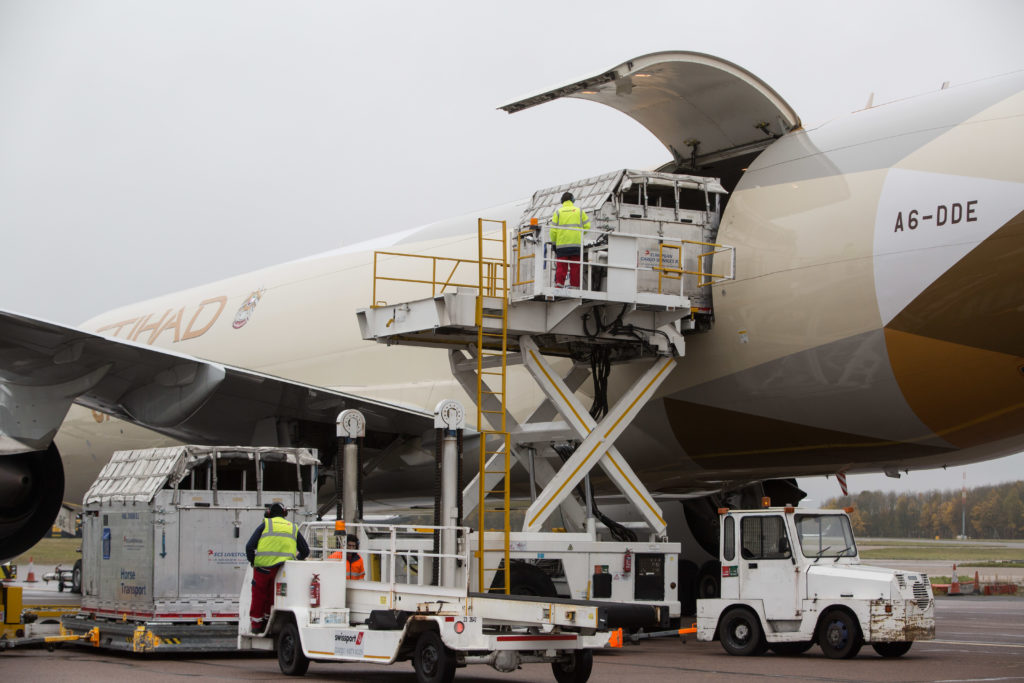No products in the cart.
Etihad Cargo opens 24/7 Control Center
 Abu Dhabi-based carrier Etihad Cargo has inaugurated its Cargo Control Center, a new facility which enables the company to actively monitor all shipments in real time across both flights and road feeder services on a 24/7 basis. This represents the next step in Etihad’s digitalization program.
Abu Dhabi-based carrier Etihad Cargo has inaugurated its Cargo Control Center, a new facility which enables the company to actively monitor all shipments in real time across both flights and road feeder services on a 24/7 basis. This represents the next step in Etihad’s digitalization program.
According to Etihad, the new center’s technology platform is based on “always-on” tracking capabilities, including shipment planning and performance monitoring across the freighter fleet and in the bellies of more than 100 passenger aircraft. The center is equipped with large screen displays that use advanced algorithms to generate alerts when issues might impact shipments, particularly those that contain specialty products and are therefore most sensitive to disruptions. Etihad is also now able to resolve any service irregularities or issues more effectively and deliver more shipments as booked, a key parameter measured by IATA interest group Cargo iQ.
“As our latest digitalization initiative, the Cargo Control Center shifts our modus operandi from a historically reactive model, to a truly proactive service delivery machine that strives to maintain the service delivery promise and support customers’ needs every step of their shipment journey,” said Andre Blech, head of operations and delivery at Etihad Cargo.
Etihad Cargo said that the control center would allow it to oversee road feeder shipments on more than 100 lanes in Europe and the Americas over the coming months. As part of a second phase, further functionality will be added to the center so that Etihad can monitor its Quick Ramp Transfer shipments at Abu Dhabi International Airport (AUH) and customer service teams can proactively take immediate corrective action.
Etihad Cargo began its digitalization initiative in October 2018, when it implemented the iCargo system from IBS Software. The carrier’s version combined six legacy platforms into one. In a separate, planned development, Advanced Cargo Information monitoring, which sends automated alerts on custom conflicts so that time spent checking individual shipment documentation is minimized, will be configured on 10 of Etihad Cargo’s busiest routes by the end of the year.
















